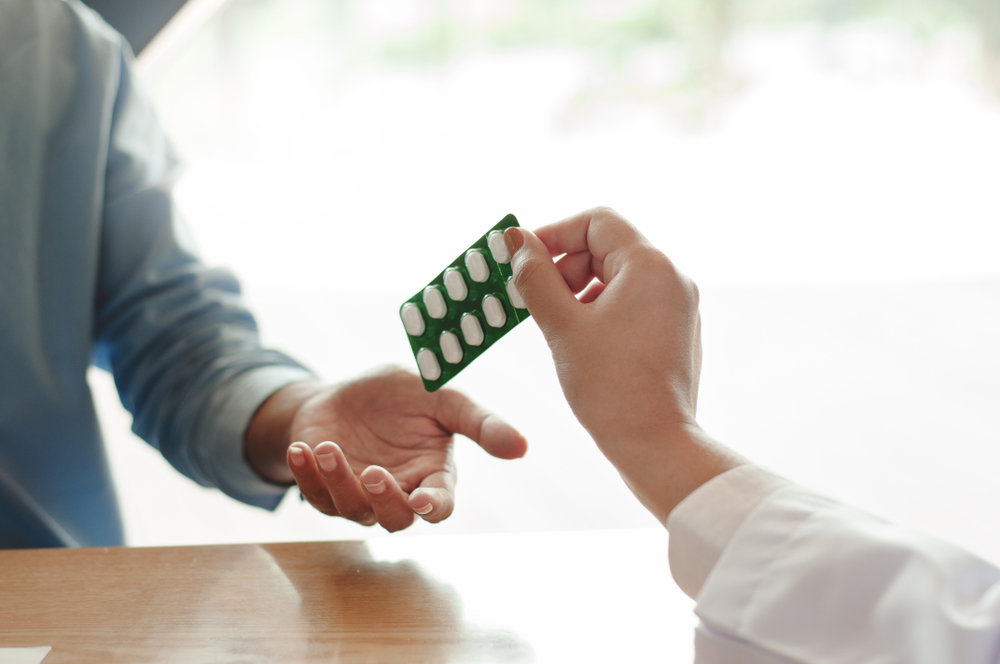Contents:
- Medical Video: How to Have Anal Sex
- Why use sex lubricants?
- How do you use sex lubricants?
- Types of sex lubricants
- Risk of using sex lubricants
- 1. Cannot prevent transmission of venereal disease
- 2. Bacterial infections and vaginal yeast infections
- 3. Irritation or allergies
Medical Video: How to Have Anal Sex
Making love with a partner is a very valuable moment. So, you certainly want the moment to run perfectly. However, sometimes there are two things that can make your sweet session and your partner less satisfying. For example, a dry vagina. At times like this you and your partner really need special lubricants or lubricants for sex. Don't worry if you are a beginner in using sex lubricants. The following has been prepared specifically for you complete information about lubricants.
Why use sex lubricants?
Basically, the vagina can produce lubricating fluids naturally. However, there are various factors that affect the production of these natural fluids. Women who smoke, enter menopause, or take certain medications such as antidepressants and allergy medications usually experience dry vaginal problems. As a result, rubbing that occurs when penetration of the penis into the vagina can feel uncomfortable and painful.
Sex lubricants function to overcome dry vaginal problems. With sex lubricants, penetration will be more smooth and painless for couples.However, some couples also use sex lubricants when having anal sex (penetration of the anus).
How do you use sex lubricants?
You can use this sex lubricant in various ways, depending on your needs and creations with your partner. However, experts recommend that lubricants be applied thinly to the penis (or a condom that is already installed). That way, all parts of the penis will remain protected from friction when it has penetrated into the vagina or anus.
Types of sex lubricants
There are various types of sex lubricants available on the market. The type is distinguished from the basic ingredients. Here are the types of sex lubricants that you can try with your partner.
- Water lubricant. The most widely sold on the market today are lubricants with the main ingredients of water (water based lubricant) This type will not damage the condom and is easily washed after making love. The shape is like a clear gel. Unfortunately, this lubricant quickly evaporates so it should be applied frequently if your session and partner continue.
- Silicone lubricant. Lubricants from silicon also form like a gel but the texture is more slippery. This type of silicone lubricant will not damage condoms and is more durable than water lubricants. However, this lubricant is rather difficult to clean and wash after making love.
- Oil lubricant. You can also use natural sex lubricants made from oil. Baby oil, coconut oil, olive oil and jojoba oil (read hohoba) can be your choice. This lubricant is more affordable and easily bought anywhere. You who have sensitive skin can use oil lubricants. However, lubricants from oil can damage latex condoms and are difficult to clean if they are attached to linen or clothing.
Risk of using sex lubricants
Sex lubricants or lubricants can indeed add intimate spices to your and your partner's hot sessions. However, consider some of the following health risks when you use lubricants.
1. Cannot prevent transmission of venereal disease
If you and your partner make love without a condom, the lubricant will not be able to kill the virus or bacteria that live in the pubic area. So, you are still at risk of contracting venereal diseases such as chlamydia, gonorrhea and HIV.
2. Bacterial infections and vaginal yeast infections
Lubricants made from oil or contain chemicals such as glycerin can disrupt the natural pH of the vagina. In fact, the pH of the vagina is regulated in such a way as to prevent the growth of bacteria, viruses, yeasts and fungi. Thus, foreign substances with different pH levels can disrupt the balance of bacteria in the vagina so that bacterial and yeast infections can occur.
3. Irritation or allergies
Some people are very sensitive to foreign chemicals, especially in the area of the penis and vagina. Using sex lubricants also runs the risk of causing an allergic reaction or irritation. Usually the symptoms that appear are the pubic area becomes reddish, feels hot like burning, swelling, or itching.
READ ALSO:
- What Is Foreplay and Why Should It Be Done Before Sex?
- 8 Things You Must Keep Away from the Vagina
- 8 Weird Facts About Penis That You Didn't Know












